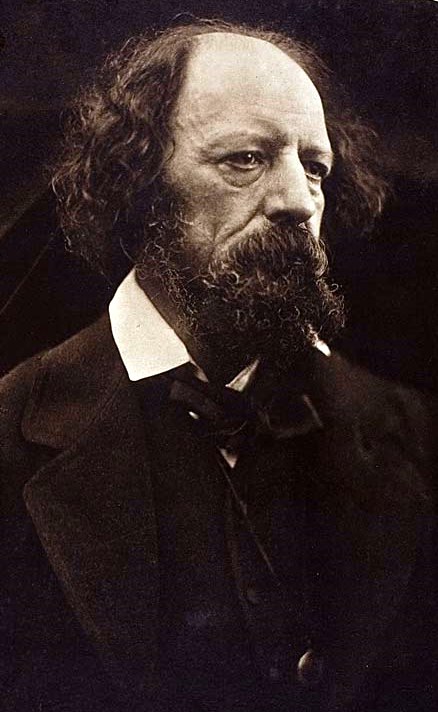“La voce dei morti era per me una voce vivente.”
Origine: Citato in Harry Carmichael, epigrafe a Delitto al rallentatore, Il giallo Mondadori, n. 1160, 25-4-1971.
Alfred Tennyson, primo Barone Tennyson , fu un poeta inglese, laureato del Regno Unito, nonché uno dei più famosi del suo Paese.
La maggior parte dei suoi versi furono ispirati a temi classici o mitologici, anche se la celebre In Memoriam fu scritta per commemorare il suo migliore amico Arthur Hallam, anch'egli poeta e suo compagno di corso al Trinity College di Cambridge, che si era fidanzato con sua sorella ma era improvvisamente morto nel 1833 a causa di un'emorragia cerebrale.
Una delle opere più famose di Tennyson sono gli Idilli del re , una raccolta di poesie interamente basate su Re Artù e sul ciclo brettone, tema ispiratogli dai racconti che Sir Thomas Malory aveva precedentemente scritto sul leggendario sovrano. L'opera fu dedicata al Principe Alberto, marito della regina Vittoria. Nel corso della sua carriera Lord Tennyson si cimentò anche nella composizione di drammi teatrali, ma in questo campo i suoi lavori riscossero uno scarso successo.

“La voce dei morti era per me una voce vivente.”
Origine: Citato in Harry Carmichael, epigrafe a Delitto al rallentatore, Il giallo Mondadori, n. 1160, 25-4-1971.
“Non ha amici l'uomo che non si è fatto mai dei nemici.”
Origine: Citato in Guido Almansi, Il filosofo portatile, TEA, Milano, 1991.
Origine: Locksley Hall Sixty Years After (1886), Line 198
“Evolution ever climbing after some ideal good
And Reversion ever dragging Evolution in the mud.”
Origine: Locksley Hall Sixty Years After (1886), Line 200
St. III
Ode on the Death of the Duke of Wellington (1852)
Part I, section xxii, stanza 2
Maud; A Monodrama (1855)
“She with all the charm of woman,
She with all the breadth of man.”
Origine: Locksley Hall Sixty Years After (1886), Line 48
Song, Act I, Scene ii
The Foresters, Robin Hood and Maid Marion (1892)
St. IX
Ode on the Death of the Duke of Wellington (1852)
Part I, section xiii, stanza 2
Maud; A Monodrama (1855)
“For it was in the golden prime
Of good Haroun Alraschid.”
Recollections of the Arabian Nights, stanza 1, from Poems, Chiefly Lyrical (1830)
“All the windy ways of men
Are but dust that rises up,
And is lightly laid again.”
" The Vision of Sin http://home.att.net/%7ETennysonPoetry/vs.htm", sec. 4 (1842)
To Mary Boyle, reported in Bartlett's Familiar Quotations, 10th ed. (1919)
" The Mystic http://www.fullbooks.com/The-Early-Poems-of-Alfred-Lord-Tennyson9.html" (1830)
St. 4
The Revenge (1878)
“For this is England's greatest son,
He that gained a hundred fights,
And never lost an English gun.”
St. VI
Ode on the Death of the Duke of Wellington (1852)
From The Ancient Sage (1885), lines 72-77
“We are ancients of the earth,
And in the morning of the times.”
The Daydream: L'Envoi, lines 231-32, from The Complete Works of Alfred Tennyson (1879)
From The Ancient Sage (1885), lines 37-39
The Lover's Tale (1879), line 815
Act iii, scene 4
Queen Mary: A Drama (published 1876)
St. 2
The Revenge (1878)